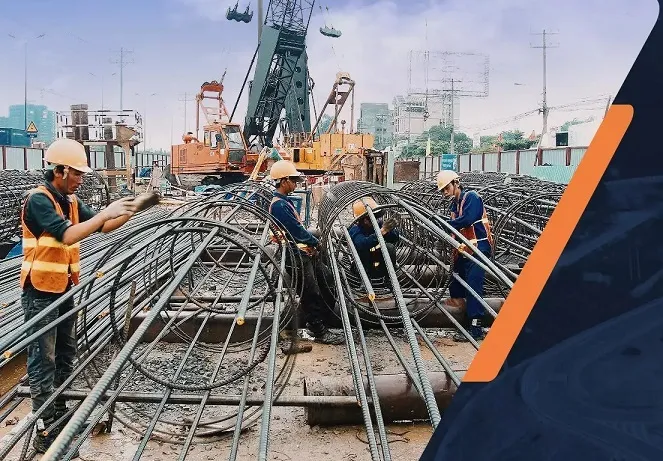
This discrepancy has been hampering the timely disbursement of financial projects and, in turn, affecting the pace of recovery and economic growth.
JOURNALIST: - Mr. HÙNG, in ADB's recent Vietnam Economic Situation Update Report, there's a mention of legal limitations still constraining the implementation of public investment projects, despite notable political commitment. Could you elaborate on this issue?
Mr. NGUYỄN BÁ HÙNG: - The government's resolute commitment and determination have yielded positive changes in the disbursement of public investment in the third quarter of 2023. Notably, Vietnam's legal framework pertaining to public investment has been progressively refined in recent years. However, the practical execution of public investment projects reveals that contract management and cost estimations do not consistently align with market realities.
The established cost norms under the existing Public Investment Law are relatively inflexible, while market dynamics and fluctuating raw material prices pose challenges. There are instances where projects receive approval but are hindered by material shortages or price spikes, leading to inaccuracies in construction volume estimates. These issues have repercussions for the progress of public investment disbursement. In my view, to enhance the effectiveness of public investment, Vietnam needs to adapt its financial regulations to better accommodate market realities. Legal stipulations should avoid excessive rigidity and offer a degree of flexibility.
- Apart from the legal challenges, what other impediments do you see in Vietnam's public investment project implementation?
- Firstly, there's a lack of efficiency in the public investment process. Public investment must prioritize efficiency in various stages, including bidding, site clearance, construction progress, and payments. The pricing of raw materials, contract management flexibility for contractors, and the effective and swift execution of activities must be considered concerning construction performance. Issues related to site clearance or contractor contracts can significantly impact the efficiency of public investment projects.
Secondly, infrastructure development is not synchronized. Although Vietnam has made substantial advancements in economic infrastructure development, the pace of progress is not keeping up with demands, especially in the context of slow implementation of key projects. Delays in infrastructure development can lead to an overloaded system, raising costs and time constraints while affecting the competitiveness of domestic and foreign-invested businesses.
- In addition to the issue of slow disbursement, transparency in public investment is a significant concern. What are your thoughts on improving transparency in this context?
- It's crucial to emphasize that clear and transparent requirements are essential for the effective execution of public investment activities while ensuring compliance with legal regulations. To achieve this, the operational capabilities of the involved units must be enhanced. Additionally, legal regulations should offer flexibility during implementation, as overly rigid rules can create implementation difficulties.
For public investment to be truly transparent, robust supervision is required. Supervising public investment activities is common practice, with independent monitoring units ensuring that construction aligns with project requirements. Periodic inspections and state agency oversight also evaluate the effective utilization of budget capital for socio-economic development. However, effective supervision necessitates an appropriate legal framework. Rigid regulations can pose challenges for relevant units and departments during project implementation.
- As we approach the final months of 2023 and early 2024, Vietnam's economy faces challenges. In your opinion, what role will public investment play in economic growth?
- I believe that opportunities for promoting economic growth still exist within Vietnam's economy. For example, the Purchasing Managers Index (PMI) for the manufacturing industry rebounded in August 2023 after a five-month decline, indicating a resurgence in consumption-driven manufacturing. The industry is projected to grow by 7% in 2023.
Moreover, if major infrastructure projects progress as planned, the construction sector will also see growth. Public investment serves as a catalyst for rejuvenating and bolstering economic growth by stimulating economic activities, job creation, income generation, and, consequently, domestic consumption.
It's worth noting that Vietnam has allocated around USD 30 billion for public investment, so concerted efforts are essential to ensure the efficient utilization of these funds. This will significantly boost market demand, generate more job opportunities, and enhance economic activities across the board.
- Thank you for your insights.




















